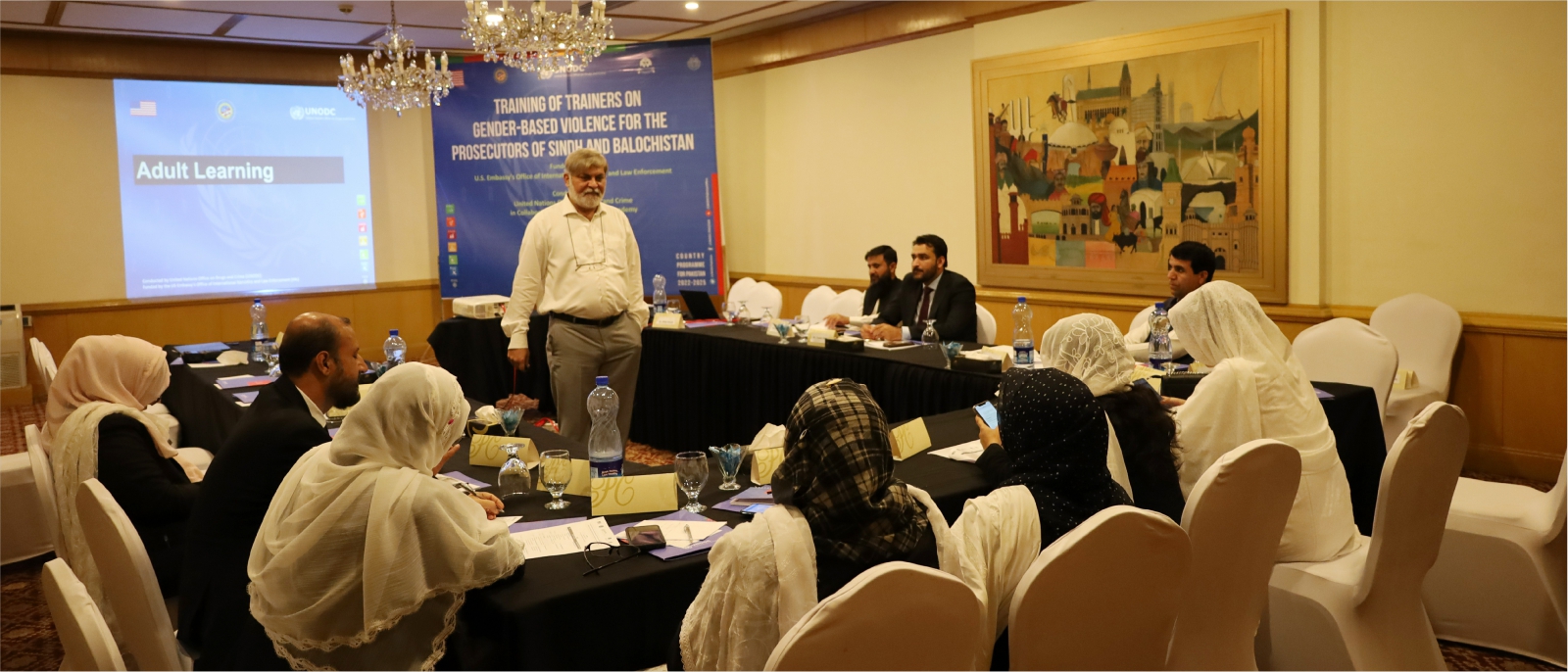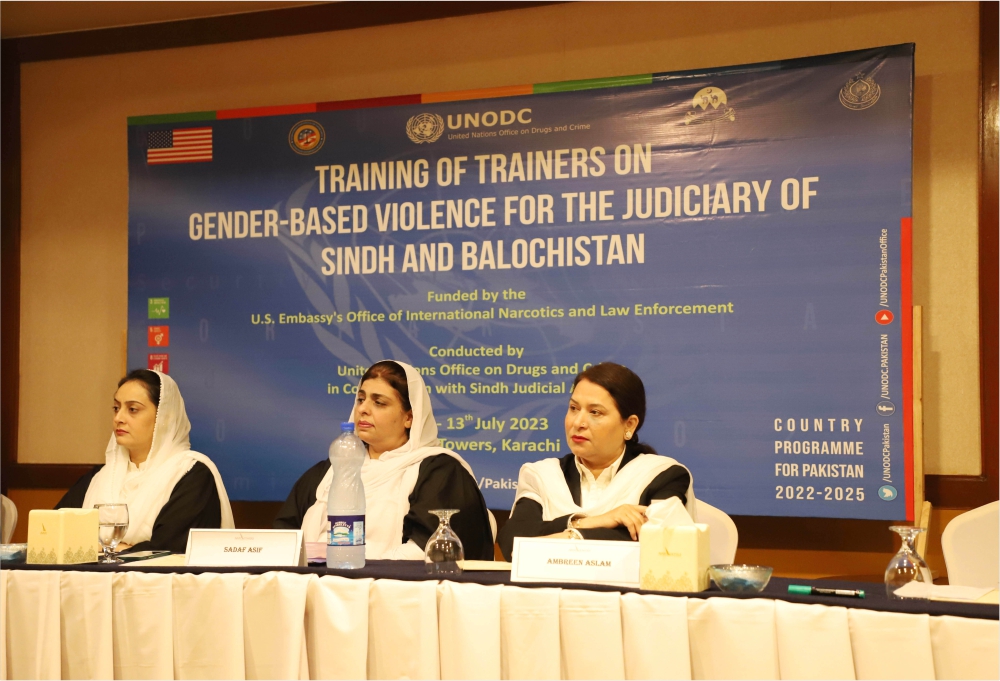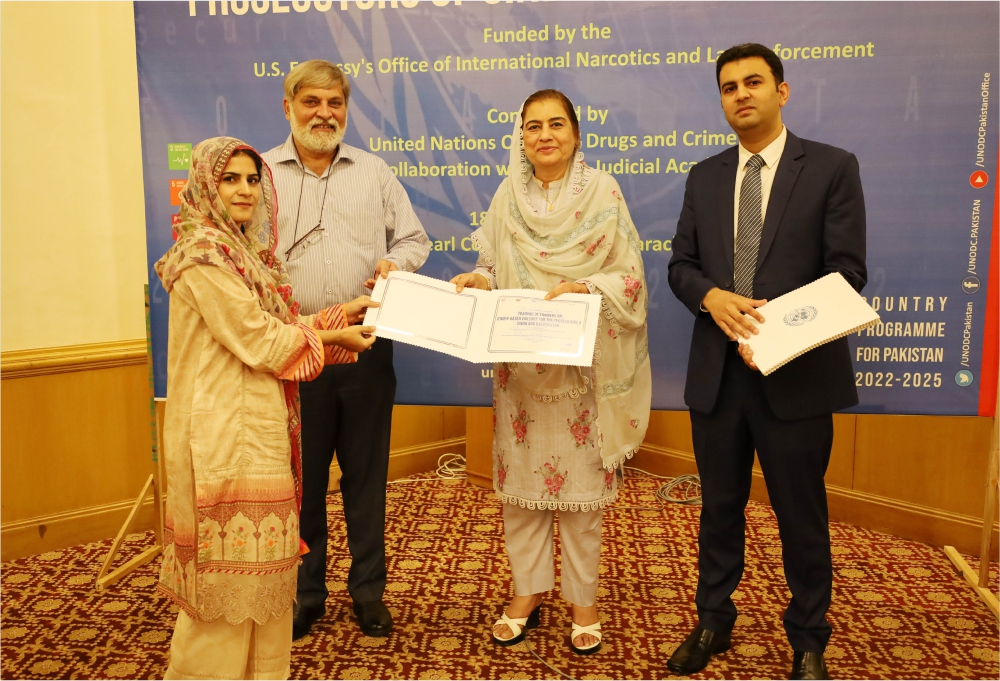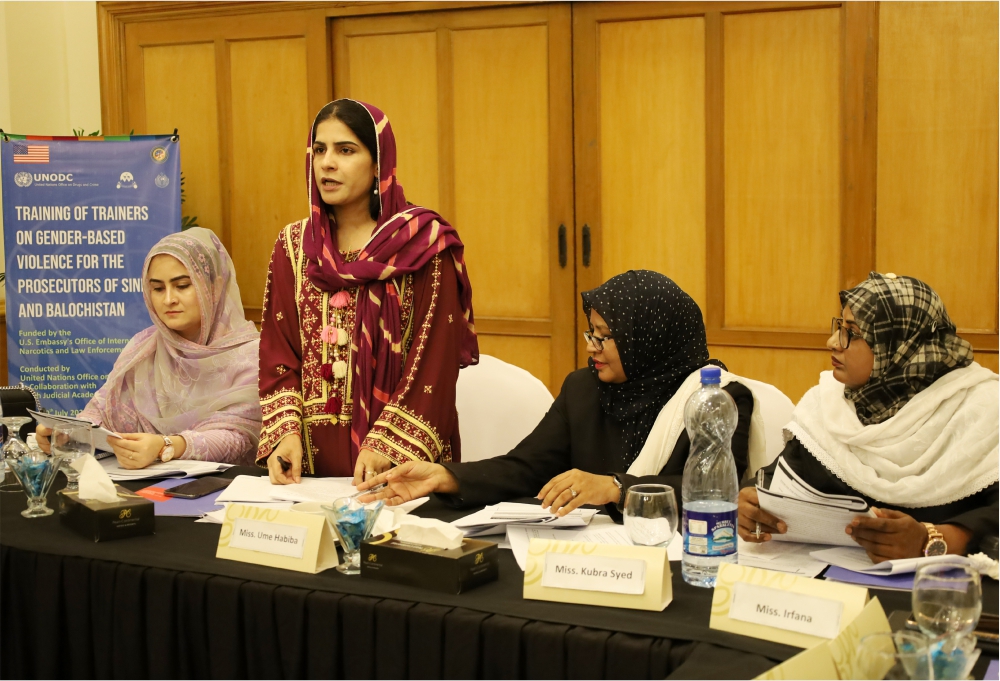
20 July 2023, Islamabad – Gender-Based Violence (GBV) is a severe violation of human rights, yet women worldwide continue to endure various forms of violence and abuse each year. According to the Asia and the Pacific Policy Society, approximately 27 percent of women in Pakistan experience intimate partner or domestic violence in their lifetime, and only 51 percent perceive their communities as safe.
The emergence of new GBV crimes such as workplace and online harassment presents fresh challenges and underscores the need for orientation and capacity building of the judiciary and prosecution regarding GBV crimes. This includes providing training and education to enhance knowledge, skills, and response mechanisms, empowering officials to effectively address and combat evolving forms of violence.
In line with the training program, the U.S. Embassy's Office of International Narcotics and Law Enforcement (INL) with the technical support of the United Nations Office on Drugs and Crime (UNODC), has successfully concluded two Training of Trainers (ToT) sessions on GBV in Sindh. In total, 30 officials participated in the training, including 10 women. The ToT aims to equip the officials with necessary knowledge and skills to become trainers in order to lead subsequent training sessions on GBV for the Judiciary and Prosecution in Sindh.



Furthermore, from August to October, five Orientation Training sessions on GBV will be conducted, specifically tailored to address the unique challenges faced by the judiciary and prosecutors in Sindh and Balochistan. These training programs will be facilitated by the selected trainers who have successfully completed the ToT sessions. Under the guidance of the master trainers, they will assume leadership roles in conducting the training sessions.
The Criminal Justice Institutions confront numerous operational challenges, including limited capacities, insufficient human resources, and inadequate infrastructure. In terms of human rights, as guaranteed by the Constitution of the Islamic Republic of Pakistan and Pakistan's international obligations, the criminal justice institutions serve as duty-bearers, while citizens are the rights-holders. Given the prominent role of criminal justice institutions in public life and their institutional capacity to deliver justice and protection in GBV cases, it is vital that CJIs operate at higher levels of effectiveness and efficiency in providing justice.
The training program encompasses trial evidence, Judicial Ethics and Integrity, pro-women laws, and work ethics for the prosecutors and judges in Balochistan and Sindh. These training sessions will also empower prosecutors to legally assist the police in framing appropriate charges against perpetrators and strengthening criminal cases related to GBV. Additionally, UNODC will undertake trainings for field service providers and master trainers of CJIs to establish a learning process that fosters in-house capacity development for training their officers.
https://twitter.com/UNODCPakistan/status/1682244809476669440
https://www.facebook.com/unodc.pakistan/posts/594178549585843?ref=embed_post
https://www.linkedin.com/feed/update/urn:li:activity:7087764673550327808
https://twitter.com/UNODCPakistan/status/1684422711777591296
https://www.linkedin.com/feed/update/urn:li:activity:7090184892675743744